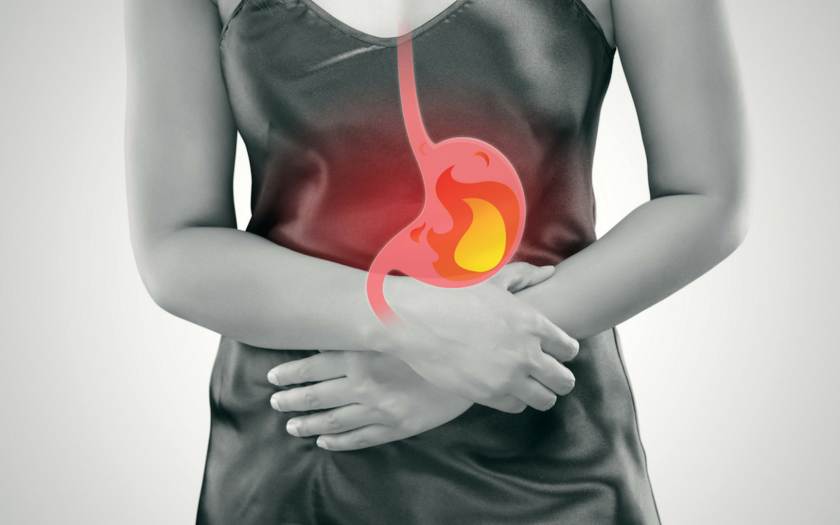Heartburn is a special feeling of discomfort behind the sternum that extends upwards from the epigastric region along the esophagus. One way or another it is associated with the return of gastric contents in the esophagus (the so-called gastroesophageal reflux).
Instead of feeling burning during heartburn, some people feel a sense of pressure, warmth or lamp. In patients with gastrointestinal profile, heartburn is usually combined with burping.
Depending on the place of manifestations distinguishes three types of heartburn:
- Pharyngeal heartburn – a feeling of burning is in the throat, usually indicates weakness of the lower and upper esophageal sphincter;
- Epigastric heartburn – a sense of burning is in the epigastrium;
- Retrosternal heartburn – a feeling of burning is behind the sternum. The bad work of lower esophageal sphincter can also be the cause of heartburn after eating, in a horizontal position.
In fact, isolated cases of heartburn were felt by many people. There are several reasons for this condition:
- on the background of receiving poor-quality foods or products, that irritate the mucous membrane of the esophagus. Basically, it is spicy food, citrus fruit, and juices, tomatoes, spices, onions, garlic, sweets. Also, significant overeating leads to heartburn;
- in situations where there is an increase in pressure of the abdominal cavity, which contributes to the reverse introduction of gastric juice and food masses from the stomach to the esophagus – this is a physical strain, lifting loads, cough, tight clothing, obesity, and pregnancy;
- eating some foods, such as fatty foods, chocolate, especially over-baked, freshly baked black bread;
- eating foods containing peppermint, alcohol, and caffeine-containing – drinks (coffee, black tea, especially sweet, Coca-Cola, etc.) that reduce the tone of the lower esophageal sphincter;
- taking medicines, such as some antihypertensive drugs, cardiac remedies, bronchial asthma medications containing theophylline (theopech, theophyllites, etc.) violate esophageal sphincter activity;
- Smoking also has a negative impact on the work of the esophageal sphincter.
Often, heartburn increases with a horizontal position, slopes forward, which promotes gastro-esophageal reflux.
There are quite a large number of people who are suffering from heartburn constantly. They experience significant torment from this. In these cases, heartburn is a symptom of various diseases of the gastrointestinal tract, including esophagitis, GERD, peptic ulcer, duodenal ulcer, chronic gastritis with increased secretory function, chronic cholecystitis, gallstone disease, it is maybe operated patients with superimposition gastro-esophageal anastomosis.
Treatment for heartburn
Heartburn is not an independent disease, but it is a symptom, so its treatment begins with the detection of the main disease causing heartburn and the treatment of this particular disease.
Most commonly treatment includes drugs that reduce the production of acid (Rabicip-20, Ranitidine Relief, Nexpro, Nexium, etc.). These drugs are for the treatment of acid-dependent diseases, including GERD, the main symptom of which is heartburn.

